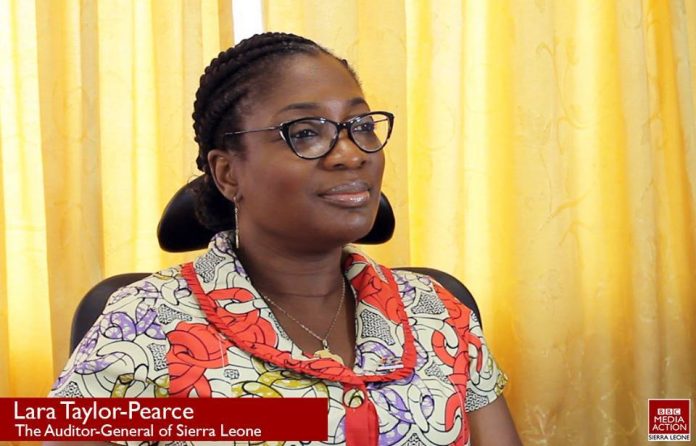By Amin Kef Sesay
With people such as the former Attorney General JFK, Lawyer Basita Michael and the leader of the National Grand Coalition party having come out openly to affirm that the Auditor General should be free from any form of political interference in the performance of her duty, The Calabash would like to harp on the importance of the country having independent regulatory and oversight institutions in the promotion of democracy and accountability.
Regulatory and oversight institutions are public bodies that are constitutionally created to be politically neutral and independent from the three branches of Government.
Their purpose is to ensure public integrity, as well as improve the quality and resilience of democratic governance.
Typical independent regulatory and oversight institutions found in modern constitutions include:
- Public service commissions, responsible for ensuring the integrity, impartiality and professionalism of the civil service
- Electoral commissions, electoral tribunals or other electoral management or electoral justice bodies which are responsible for ensuring the impartial management of elections
- Judicial service commissions, judicial appointments commissions or supreme councils of the judiciary, responsible for nominating judges and sometimes for supervising judicial ethics and conduct
- Ombudsmen, responsible for investigating citizens’ complaints against the administration, and sometimes initiating investigations
- An auditor-general, courts of accounts or other supreme audit institution, responsible for auditing public accounts and ensuring financial integrity
- Anti-corruption commission (or public ethics commission), responsible for enforcing ethical standards in public life and preventing or investigating corruption
- Human rights commissions, to monitor and promote the enforcement of human rights
- Gender equality/women’s commissions, which assess policies from a gender perspective, promote gender equality and protect the rights of women
- Some countries have minorities’ commissions, which assess the impact of government policies on ethnic, religious, cultural or linguistic minorities, or protect the rights of those minorities
Some questions relating to the independence of these bodies include:
Which institutions are needed?
How they should be appointed?
How should their independence and neutrality be protected?
How they should be held accountable?
What should the constitution say about their mandate, powers and duties and what should be left to ordinary law?
The term ‘independent regulatory and oversight institutions’ emphasizes the politically and institutionally independent nature of these institutions, together with their regulatory and oversight (rather than executive, legislative or judicial) functions.
RELEVANCE
Independent regulatory and oversight institutions—if properly established, empowered, resourced and trusted—can help to improve the quality of governance, strengthen the rule of law, encourage transparency and accountability, prevent corruption and ultimately reinforce both the quality and the resilience of democracy.
They do this either by insulating certain types of State activity (such as civil service appointments or the holding of elections) from partisan politics or by providing a dedicated mechanism for publicly scrutinizing and reporting on other types of State activity (such as enforcing human rights or gender equality).
However, these institutions are not a panacea. Serious questions remain as to their effectiveness in practice, especially in new democracies.
They might lack the necessary funds, resources, staff and expertise to do their jobs properly. They might suffer from a lack of leadership and integrity, failing to take their duties seriously—adopting a passive and minimal interpretation of their role, taking bribes, acting in a partisan manner or otherwise undermining their own position and legitimacy.
It is possible to guard against such tendencies by carefully designing these institutions to ensure they have a clear constitutional mandate, secure sources of funding and suitably balanced appointment and tenure mechanisms.
Yet it is pragmatic to have realistic expectations. Even the best constitutional rules cannot completely protect these institutions in the absence of good leadership and supportive norms, values and public ethics.
Another consideration is that an over-reliance on independent regulatory and oversight institutions may encourage a tendency to address essentially political problems in a depoliticized, technocratic way.
When these institutions cease to be ‘watchdogs’ or guardians of procedural propriety and instead adopt an activist, policymaking role, they may erode the legitimate function of partisan politics and diminish the ability of elected representatives to resolve important public issues. This can damage democratic legitimacy and accountability.
Finally, these institutions have associated costs, including salaries, allowances and office expenses. These costs can place unnecessarily heavy demands on the national budget, especially for a country like ours with limited financial resources.
It is also difficult to appoint people of the necessary standing, character and qualifications. Solutions include keeping such institutions relatively small and little in number and avoiding duplication by merging functions where possible.




